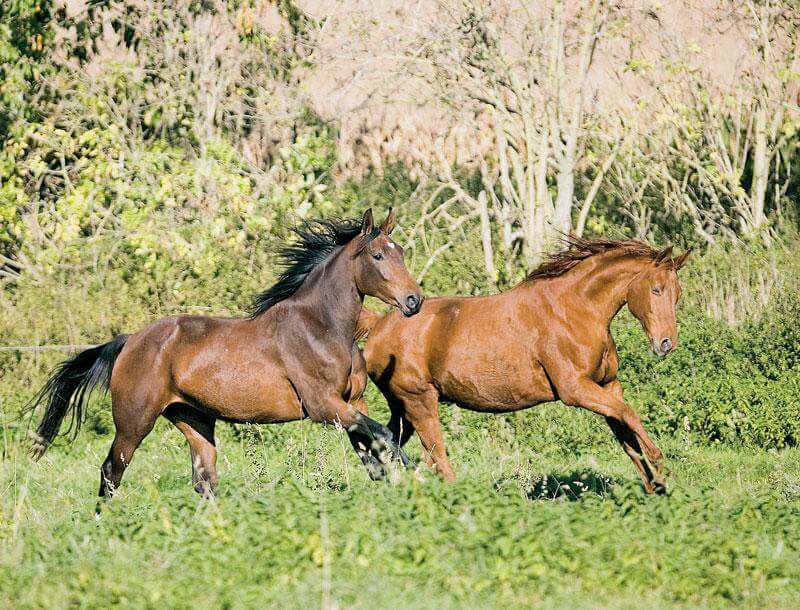- Phone and 24-hour emergency service: +49 (0) 42 82 - 59 46 34 0
- mail@hanseklinik.com
- Mo. to Fr. 8 a.m. to 6 p.m. | Sa. 9 a.m. to 12 p.m. | Please take note of our separate visiting hours
Equine emergency medicine

24h Emergency services:
+49 (0) 42 82 - 59 46 34 0
Most emergencies are unpredictable and occur outside of regular appointment hours, so we are available around the clock, via our phone number +49 (0) 42 82 – 59 46 34 0 whenever you need us. After making arrangements on the phone, please bring your horse to us as quickly as possible so that we can ensure we give your animal optimum care.
Please bear in mind that we will need you to give us the following information in advance over the phone so that we can immediately start targeted examination and treatment once the patient arrives:
- How is your horse’s general condition?
- Is its condition stable enough for transport?
- What is the emergency? (colic, broken bone, nail penetration injury, oesophageal obstruction, poisoning or similar)
- Who is your regular vet?
- When did your vet last examine or treat the horse?
- Which medications does the horse take?
- When do you expect to be able to come to Hanse Equine Hospital?
When travelling to us, please call again approximately 15 minutes before arriving at the hospital, so that we can greet you immediately.
Please bear in mind that only moveable horses should be transported. If the animal is not in a condition to be transported, please first contact your regular vet who can help you with transport preparations.
Once you arrive at Hanse Equine Hospital, your animal will be examined in depth, treated and, where necessary, admitted for further diagnostics or for intensive monitoring.
Your horse will be in the best possible hands in our intensive care unit with four specialised stalls. The patient is continuously monitored day and night by our qualified specialist staff. A vet is available at the hospital round the clock, so that late-night emergencies can also be dealt with immediately.
Generally, where possible, your regular vet should examine the horse first and perform any preliminary treatments. For example, this may include a pain relieving injection, sedation or, if necessary, inserting nasogastric tubing, so that your horse is not transported with a full stomach.
If you need to transport a colicky horse in severe pain, you should remove the trailer partition and pad out the trailer with straw bales to avoid any injuries if the horse rolls around. You should also avoid stopping on your journey or opening the trailer door, as doing so could put you and your horse in serious danger. The best way to help your horse is by trying to get to Hanse Equine Hospital as quickly as possible. In cases like this, please call us again shortly before your arrival, so that we can properly examine your horse straight away.
Before transporting a horse with a fractured limb, you should always first contact your regular vet and have them apply a stabilising bandage or, where possible and in consultation with us, a plaster cast. This will help stabilise the leg for transport. Pack the horse as tightly as possible in the trailer and pad the walls with hay bales. A horse trailer with a front exit will make unloading easier.
If you discover that your horse has a heavily bleeding wound on its leg, please contact a local vet as quickly as possible and try to apply a bandage. Transport to our hospital should only happen if necessary and only after emergency treatment in the horse’s home stable.
